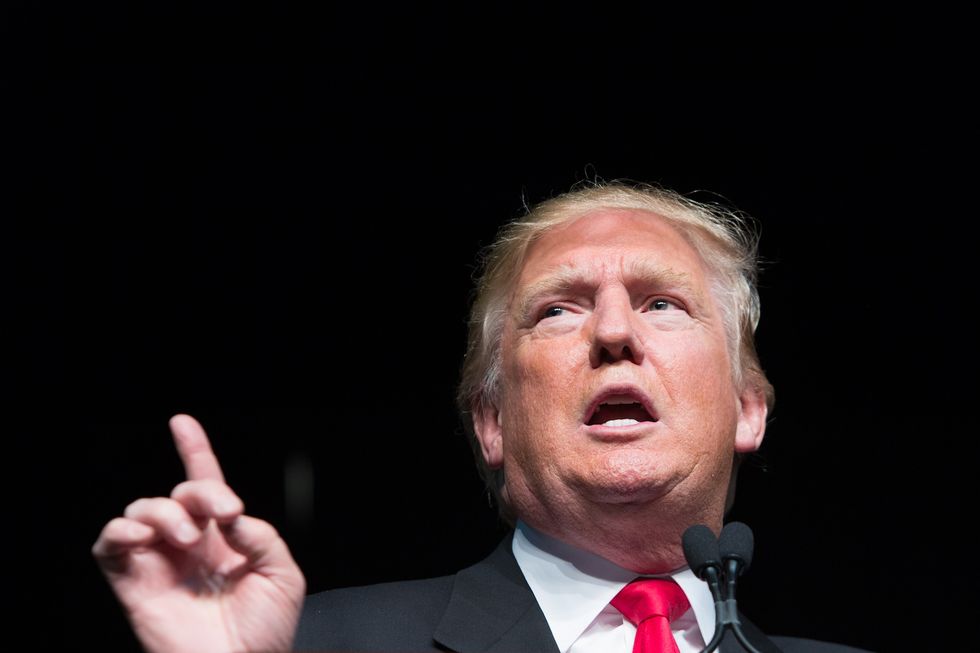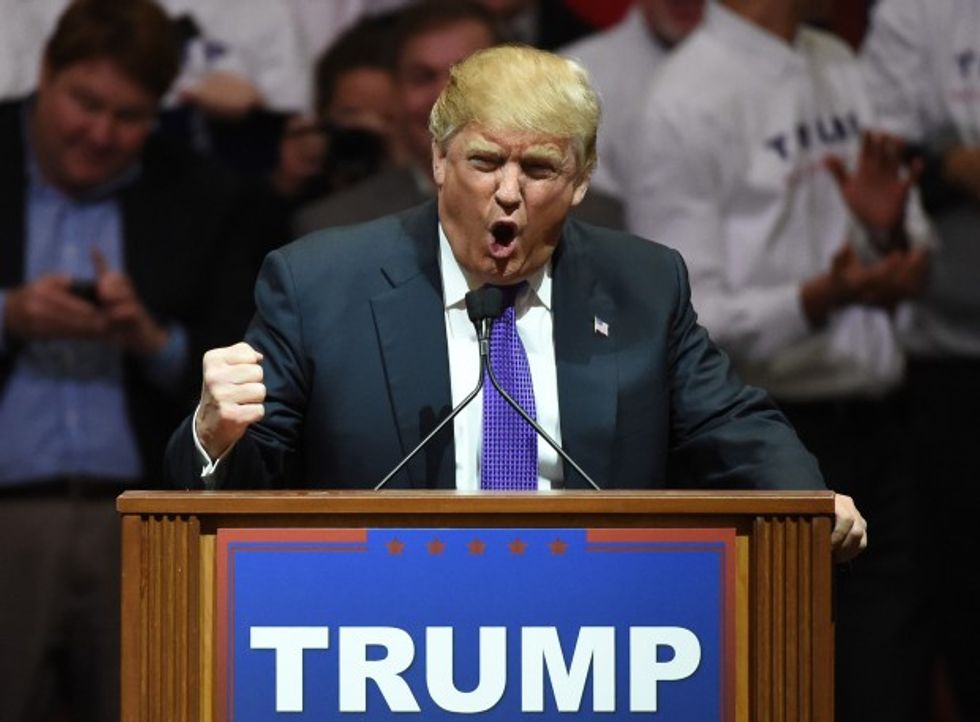
Donald Trump speaks during a campaign rally at the Georgia World Congress Center, Feb. 21, 2016. (Getty Images/Branden Camp)

Republican presidential candidate Donald Trump said Friday that if elected president he will “open up our libel laws” so that when media organizations publish articles that aren’t favorable to him, he can sue them and “win lots of money.”

“One of the things I’m going to do, and I’ve never said this before,” Trump said at a rally in Fort Worth, Texas, “but one of the things I’m going to do is — if I win — is I’m going to open up our libel laws so when they write purposefully negative and horrible and false articles, we can sue them and win lots of money.”
Editorial writer and editor Josh Greenman reached out to First Amendment attorney Floyd Abrams to hear his perspective on the Republican front-runner ’s expressed goal of opening up libel law.
Abrams’ reply, which Greenman shared in a tweet, reveals a major flaw in Trump’s objective: As president, Trump wouldn’t have the authority to do such a thing.
Here's what First Amendment attorney Floyd Abrams wrote to me about @realDonaldTrump's desire to "open up" libel law pic.twitter.com/M0kYHfgOhU
— Josh Greenman (@joshgreenman) February 27, 2016
“There is no federal libel law for Trump to amend or change and thus no role for the President at all,” Abrams wrote in an email.
Libel law, Abrams wrote, has been a prerogative of the states “from the first days of the nation,” and all 50 states have their own libel laws.
Abrams did, however, note one exception.
“The First Amendment governs in state and federal courts and so when T[rump] says he wants to ‘open up’ libel law, he really means … that he wants to open up … the First Amendment.”
The attorney explained that since 1964, the First Amendment has been held to require “proof that what was said was false and that the newspaper knew or suspected that it was false.”
“In short,” Abrams concluded, “he simply doesn’t know what he’s talking about.”